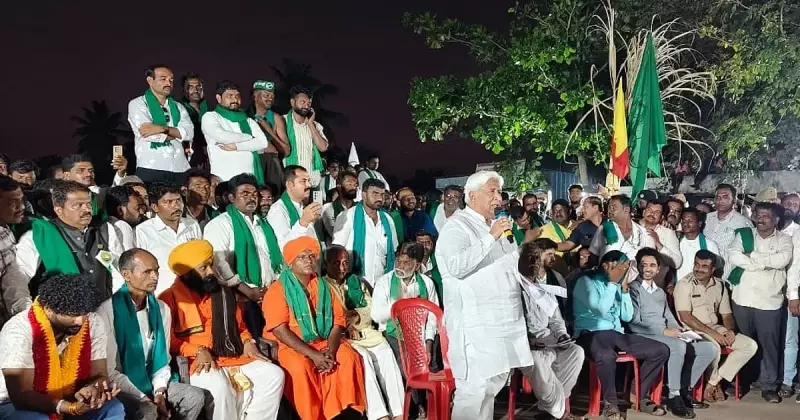
In a dramatic standoff that has captured Karnataka's attention, sugarcane cultivators remain steadfast in their protest despite a direct invitation for discussions from State Agriculture Minister N. Cheluvarayaswamy. The situation remains tense as farmers show no signs of backing down from their demands.
Minister Extends Olive Branch Amid Growing Unrest
The agriculture minister has taken a conciliatory approach, publicly urging protesting farmers to come to the negotiating table. "I appeal to the farmers to call off their protest and come for talks. We are ready to discuss all their issues," stated Cheluvarayaswamy, emphasizing the government's willingness to address the growers' concerns through dialogue rather than demonstrations.
Farmers' Unyielding Stance: Key Demands
The protesting sugarcane growers have articulated clear, non-negotiable demands that form the core of their agitation:
- Price Increase: Farmers are demanding a significant hike in the State Advisory Price (SAP) for sugarcane, arguing that current rates fail to cover rising production costs
- Timely Payments: Growers insist on immediate settlement of outstanding dues from sugar factories, many of which have accumulated over several months
- Government Intervention: Protesters seek stronger government action to ensure sugar mills honor their financial commitments to farmers
Root Causes of the Agricultural Crisis
The current protest stems from deeper systemic issues plaguing Karnataka's sugarcane sector. Farmers cite escalating input costs, including fertilizers, pesticides, and labor, while sugarcane prices have remained stagnant. This economic squeeze has pushed many growers to the brink, forcing them to take to the streets despite the potential impact on their livelihoods.
Broader Implications for Karnataka's Economy
The ongoing agitation threatens to disrupt one of Karnataka's crucial agricultural sectors. Sugarcane cultivation supports thousands of families across the state, and prolonged protests could have ripple effects on related industries, including sugar production, transportation, and export sectors. The standoff also poses significant political challenges for the state government ahead of crucial electoral periods.
What Lies Ahead: Potential Resolution Scenarios
While the minister's offer for talks represents a positive step toward resolution, the farmers' unwavering position suggests a challenging negotiation process ahead. Industry experts suggest several potential outcomes:
- Price Compromise: A moderate increase in SAP that partially addresses farmer concerns while considering sugar mills' financial constraints
- Payment Schedule: Structured repayment plan for outstanding dues with government guarantees
- Policy Reform: Long-term solutions including revised pricing mechanisms and stronger enforcement of payment deadlines
The coming days will be critical in determining whether both parties can bridge their differences or if the protest will intensify, potentially affecting sugarcane processing and sugar production across Karnataka.






